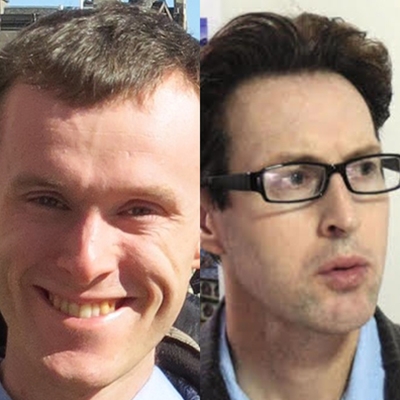
Event 2
Carwyn Graves talks to Meinir Howells
Elements of the Welsh Landscape
– Meadow Stage
Read moreThe ecologist, Carwyn Graves discusses our landscape, how we have formed it and how we might continue to do so, in conversation with Welsh presenter and producer Meinir Howells. Graves gives a tour of the Welsh landscape, from the ffridd (mountain pasture) to the rhos (wild moorland). He dives deep into their history and ecology in his book Tir (‘Land’) offering hope for a future with richly biodiverse landscapes, still full of humans working the land.
Sponsored by Black Mountains College

Event 3
Liam Byrne talks to Oliver Bullough
Capitalism and Wealth Inequality
– Discovery Stage
Read moreIs there any coming back from the ways in which capitalism and wealth inequality have shaped the world? Yes, argues Treasury Minister Liam Byrne, but only if we rebuild instead of trying to fix broken systems. Byrne discusses his ideas for radical and meaningful change with writer Oliver Bullough.
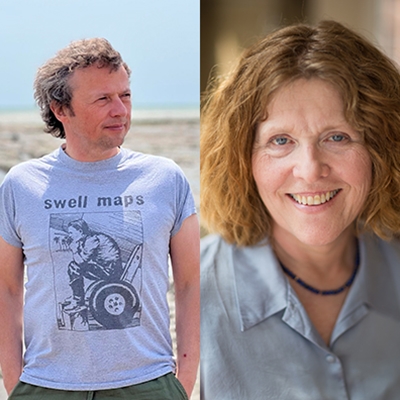
Event 5
Gareth E Rees and Fiona Stafford
Submerged Landscapes
– Meadow Stage
Read moreJoin author Gareth E Rees and academic Fiona Stafford on a journey through hidden spaces, forgotten gardens and natural and man-made phenomena that tell us about our past, present and future. Rees is author of Sunken Lands: A Journey through Flooded Kingdoms and Lost Worlds, which uncovers what our submerged past and shifting boundaries between land and water can tell us about our imminent future as rising sea levels transform our planet once more. In Time and Tide: The Long, Long Life of Landscape, Stafford combines local, literary and her own family history to look at the natural and human forces that transform places, and where we can find clues to the past. In conversation with Tom Bullough, author of 5 books, most recently, Sarn Helen - A Journey Through Wales, Past, Present and Future.
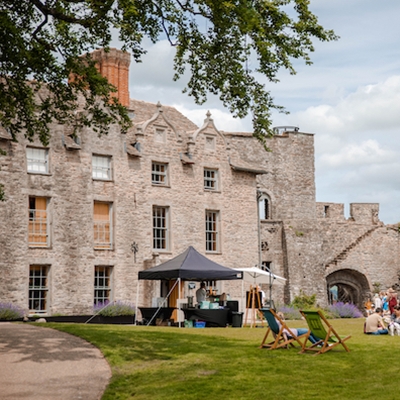
Event HC1
Hay Castle Entry Ticket
– Hay Castle
Read moreA fantastic opportunity to see behind the scenes of this unique and historic building. Visit at a time of your choice during Castle opening hours.
A Hay Castle Trust event
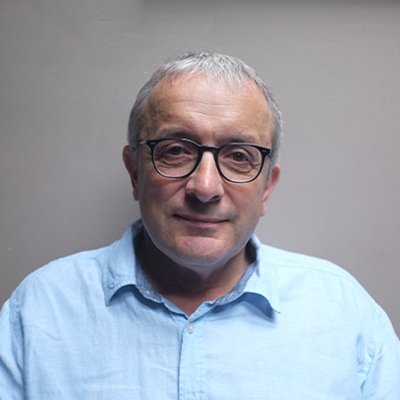
Event 400
Roland Philipps talks to Bronwen Maddox
Roger Casement
– Wye Stage
Read morePioneering human rights campaigner, patriot, traitor, romantic and LGBTQ+ martyr, Roger Casement is one of the 20th century’s most complex and compelling figures. Roland Philipps (author of A Spy Named Orphan) discusses his biography of this contradictory man, Broken Archangel: The Tempestuous Lives of Roger Casement.
Internationally celebrated for unearthing the grotesque violence of the Belgian Congo, Casement won a knighthood for his humanitarian work in the Amazon jungle. But his internal fault lines ran deep, caught between England and Ireland, Protestant and Catholic, contemporary mores and private emotions. He was tried and executed for treason – only now can we fully understand his surprisingly modern and deeply relevant life and legacy.

Event 21
David Van Reybrouck talks to Julia Wheeler
Revolusi
– Wye Stage
Read moreDrawing on hundreds of interviews and eye-witness accounts, David Van Reybrouck (Congo) brings the gripping story of Indonesia’s struggle for independence alive with human detail at every turn in Revolusi: Indonesia and the Birth of the Modern World. Four million civilians had died during the WW2 occupation by the Japanese. In the grim aftermath of the war, another 200,000 people would lose their lives as the Dutch used savage violence to reassert their former colonial regime against the guerrilla war of resistance: the ‘revolusi’. But the Netherlands would be forced to cede all sovereignty, ending 350 years of colonial rule and setting a precedent that would reshape the world.
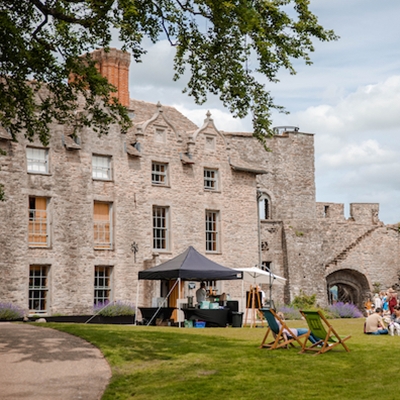
Event HC2
Hay Castle Entry Ticket
– Hay Castle
Read moreA fantastic opportunity to see behind the scenes of this unique and historic building. Visit at a time of your choice during Castle opening hours.
A Hay Castle Trust event
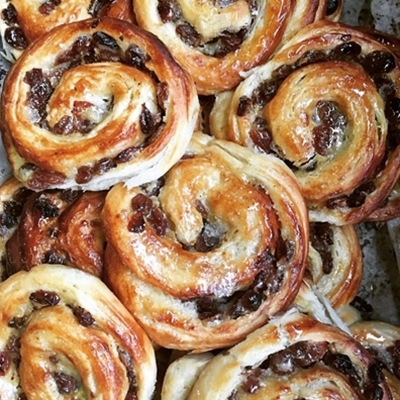
Event HC3
Breakfast Tour with Tom True
– Hay Castle
Read moreHay Castle’s executive director Tom True introduces the key moments and characters from the castle’s past followed by a continental breakfast.
A Hay Castle Trust event
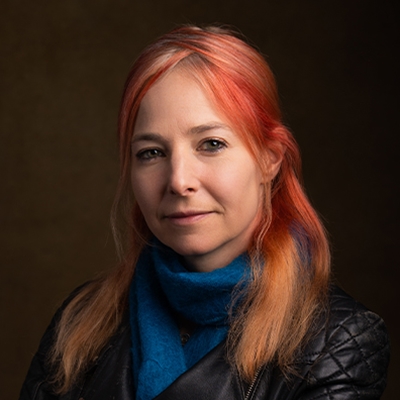
Event 55
Alice Roberts
Crypt
– Global Stage
Read moreAcademic and broadcaster Professor Alice Roberts (Channel 4’s Time Team, BBC2’s Digging for Britain) brings us face to face with individuals who lived and died between ten and five centuries ago, giving a brilliant and unexpected portrait of modern Britain. The stories she tells in Crypt are not comforting tales; there’s a focus on pathology, on disease and injury, and the experience of human suffering in the past. Most of the dead will remain anonymous but, thrillingly, she introduces an individual whose life and bones were marked by chronic debilitating disease – and whose name might just be found in history.
Sponsored by Malvern St James Girls' School
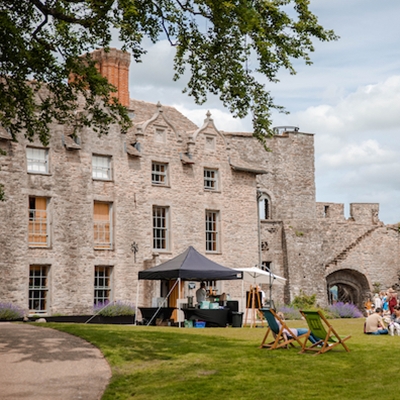
Event HC4
Hay Castle Entry Ticket
– Hay Castle
Read moreA fantastic opportunity to see behind the scenes of this unique and historic building. Visit at a time of your choice during Castle opening hours.
A Hay Castle Trust event

Event HC5
Breakfast Tour with Tom True
– Hay Castle
Read moreHay Castle’s executive director Tom True introduces the key moments and characters from the castle’s past followed by a continental breakfast.
A Hay Castle Trust event
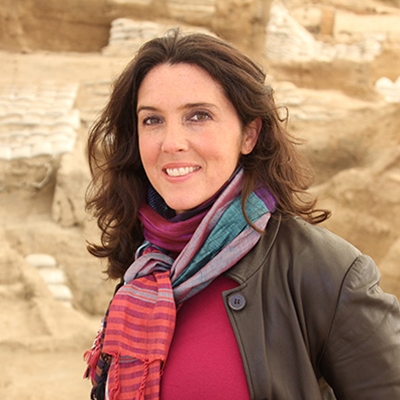
Event 73
Bettany Hughes
The Seven Wonders of the Ancient World
– Global Stage
Read moreExplore the ancient world with Bettany Hughes, who tells it through its seven greatest monuments: the Great Pyramid at Giza, Egypt; the Hanging Gardens of Babylon, Iraq; the Statue of Zeus at Olympia, Greece; the Temple of Artemis at Ephesus, Turkey; the Mausoleum of Halikarnassos, Turkey; the Colossus of Rhodes, Greece; and the Lighthouse of Alexandria, Egypt. All were staggeringly audacious, and demonstrated the reaches of human imagination. Now only the Pyramid remains, yet the scale and majesty of these seven wonders still enthral us today. The author of Venus & Aphrodite and Helen of Troy asks: why do we wonder, why do we create and why do we choose to remember the wonder of others?
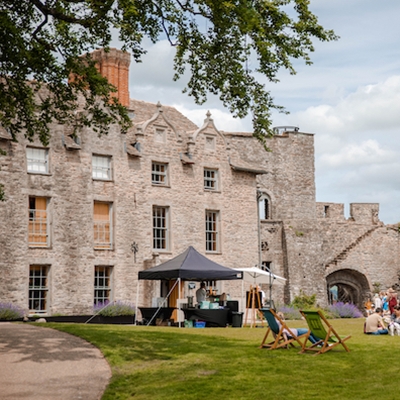
Event HC6
Hay Castle Entry Ticket
– Hay Castle
Read moreA fantastic opportunity to see behind the scenes of this unique and historic building. Visit at a time of your choice during Castle opening hours.
A Hay Castle Trust event
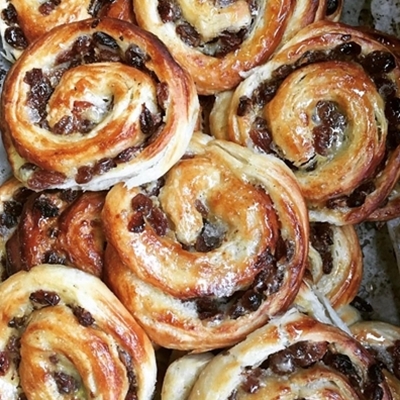
Event HC7
Breakfast Tour with Tom True
– Hay Castle
Read moreHay Castle’s executive director Tom True introduces the key moments and characters from the castle’s past followed by a continental breakfast.
A Hay Castle Trust event

Event 120
Tom Holland talks to Bettany Hughes
War and Peace in Rome’s Golden Age
– Global Stage
Read moreFrom the historian and co-presenter of The Rest is History podcast comes the story of antiquity’s ultimate superpower at the pinnacle of its greatness. The Roman Empire once stretched from Scotland to Arabia, the wealthiest and most formidable state the world had seen. Holland’s Pax: War and Peace in Rome’s Golden Age begins in 69 AD, a year that saw four Caesars in succession rule the empire, and ends some seven decades later with the death of Hadrian. Covering the destruction of Jerusalem and Pompeii, the building of the Colosseum and Hadrian’s Wall, and the conquests of Trajan, he vividly sketches the lives of Romans from slaves to emperors. This is the last of his trilogy that began with Rubicon and continued with Dynasty.
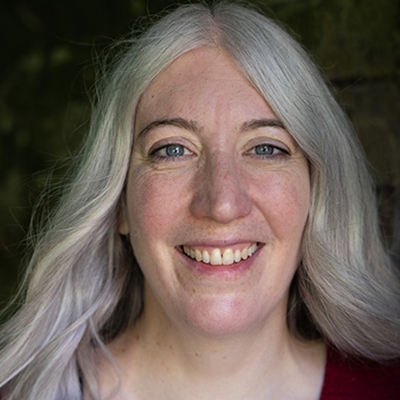
Event 129
Josephine Quinn talks to Stephanie Merritt
How the World Made the West
– Discovery Stage
Read moreThe roots of Western civilisation lie in ancient Greek and Rome, and values like freedom, rationality, justice, democracy and tolerance originated in the West. But what if that’s not true? Covering 4,000 years of history, Josephine Quinn calls for a major reassessment of the West, arguing that many of the values we hold close are not only or originally western, and that the West is a product of longstanding links between a large group of cultures, from the Gobi Desert to the Atlantic Ocean, Scandinavia to the Sahara. Quinn, a professor of ancient history at the University of Oxford, puts forward a rich new narrative that has the power to change how we see the world.
Sponsored by The Slow Cyclist
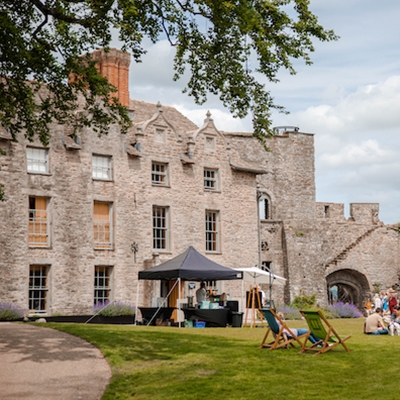
Event HC8
Hay Castle Entry Ticket
– Hay Castle
Read moreA fantastic opportunity to see behind the scenes of this unique and historic building. Visit at a time of your choice during Castle opening hours.
A Hay Castle Trust event

Event 158
Stephen Fry
Homes fit for Heroes?
– Global Stage
Read moreTroy has fallen. After ten years of war, the Greeks make their way back to their own lands – but what homes now await them? Hay Festival President Stephen Fry is well known for his retellings of Greek myths – Mythos, Heroes and Troy are all bestsellers. Join him as he now directs his gaze to Odysseus, Agamemnon, Helen and Aeneas on their return from the Trojan War. The award-winning comedian, actor, presenter and director gives a pre-publication preview of the subjects of his next book.
Sponsored by Shepherds Parlour

Event 168
Robert Gildea, Amanda Powell and Richard Williams talk to Siân James
Coal and Community
– Meadow Stage
Read moreIt’s been 40 years since Arthur Scargill led the National Union of Mineworkers on one of the largest strikes in British history. Vilified by Margaret Thatcher’s government and eventually broken, Britain’s mining communities were changed forever. Academic Robert Gildea and husband-and-wife team Amanda Powell and Richard Williams reflect on the strike and its lasting impacts. Gildea’s Backbone of the Nation: Mining Communities and the Great Strike of 1984–85 explores mining communities from South Wales to Fife, drawing on interviews with miners and their families for this groundbreaking new history. Gildea is Professor Emeritus of Modern History at the University of Oxford. Powell and Williams both reported on the strike when it happened, and revisit it in their book Coal and Community in Wales. Award-winning journalist Powell’s account of key events and press photographer Williams’ striking images offer an in-depth look at life in the South Wales coalfield before and after the strikes.

Event 174
Corinne Fowler talks to Oscar Guardiola-Rivera
Our Island Stories: Country Walks Through Colonial Britian
– Spring Stage
Read moreHistorian Corinne Fowler brings rural life and colonial rule together, sharing the ways in which the British Empire transformed rural lives, offering opportunity and seeking exploitation. She shows how the booming profits of overseas colonial activities directly contributed to enclosure, land clearances and dispossession in the UK, and how these histories continue to have an impact. Fowler’s most recent book is Our Island Stories: Country Walks through Colonial Britain, and she is Professor of Colonialism and Heritage in Museum Studies at the University of Leicester. She co-authored the 2021 National Trust report on its country houses’ historical links to the British Empire, and is also author of Green Unpleasant Land: Creative Responses to Rural England’s Colonial Connections. She talks to Oscar Guardiola-Rivera, author and Professor of Human Rights and Political Philosophy at Birkbeck University, London.

Event 177
Peter Apps talks to Matthew D’Ancona
Deterring Armageddon: A Biography of NATO
– Spring Stage
Read moreNATO this year marks its 75th anniversary, and discussions around its purpose, achievements, faults and usefulness have never been louder. Journalist Peter Apps takes a look at the history of NATO, from the Korean War to the pandemic, the Berlin and Cuba crises, and the chaotic evacuation from Kabul.
Peter Apps is global defence correspondent for Reuters news agency and is currently on sabbatical as executive director of the Project for Study of the 21st Century (PS21). Apps reported from Sri Lanka during the civil war between the government and Tamil Tiger rebels. In September 2006, he broke his neck in a minibus crash while covering the conflict, leaving him largely paralysed from the shoulders down. He returned to work in a wheelchair nine months later, using voice recognition software to resume his writing career. Of the 20 or so countries he has reported from, more than half have been since the injury.
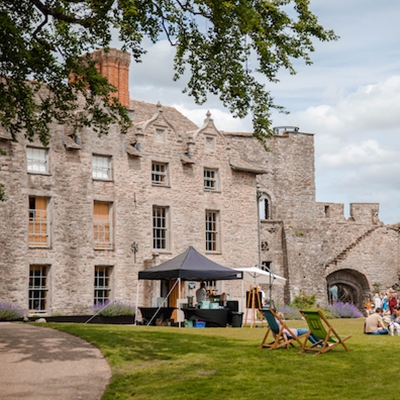
Event HC9
Hay Castle Entry Ticket
– Hay Castle
Read moreA fantastic opportunity to see behind the scenes of this unique and historic building. Visit at a time of your choice during Castle opening hours.
A Hay Castle Trust event
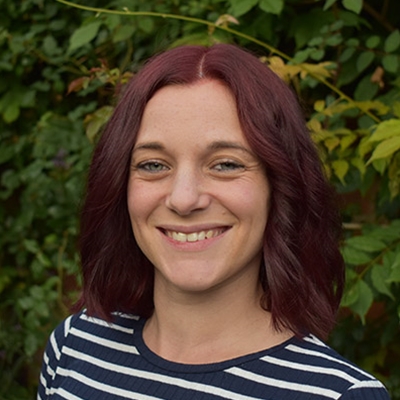
Event 183
Imogen Peck
Memory Wars: The Lasting Legacy of Britain’s Civil Wars
– Wye Stage
Read moreThe historian of the mental afterlife of conflict examines the civil wars that engulfed Britain in the mid-seventeenth century – the most destructive in the island’s history. The wars left lasting scars on the British cultural and political imagination, and the memory of that turbulent decade in the 1600s continues to haunt the politics of the present. Dr Imogen Peck asks what, in a time of global instability, we might learn from the successes and failures of early modern states, exploring some of the surprising parallels between early modern and modern approaches to cultural memory and issues of national reconciliation. Author of Recollection in the Republics, Peck is Assistant Professor in British History at the University of Birmingham and Director of the Centre for Midlands History and Cultures.
In association with the University of Birmingham

Event 213
Alison Weir
Mary I: Queen of Sorrows
– Discovery Stage
Read morePrincess Mary was the adored only child of Henry VIII and Katherine of Aragon and was raised in the golden splendour of her father’s court. But her world soon began to fall apart: the King wanted a son and heir, and her parents’ marriage was crumbling. Exiled from the court and her beloved mother, she sought solace in her faith but found the choices she faced would haunt her for years to come. Alison Weir fictionalises the life of Princess Mary, who went on to be known as Bloody Mary, in her new Tudor novel. She discusses the drama and tragedy of the royal’s life.
Sponsored by Claire Vaughan Designs
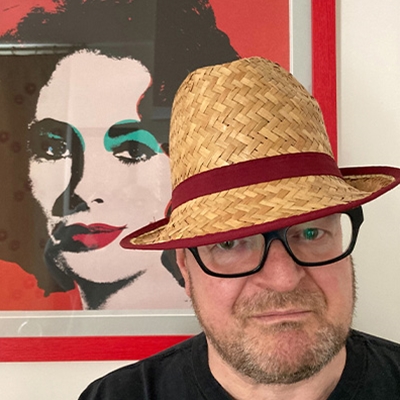
Event 404
Roger Lewis talks to Stephen Fry
Erotic Vagrancy
– Meadow Stage
Read more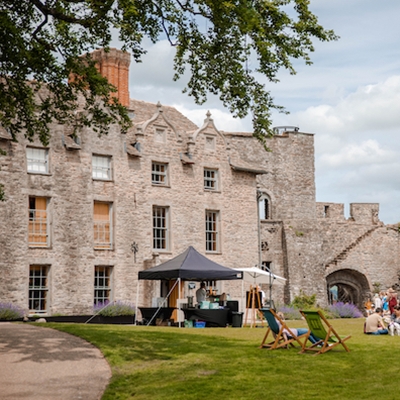
Event HC13
Hay Castle Entry Ticket
– Hay Castle
Read moreA fantastic opportunity to see behind the scenes of this unique and historic building. Visit at a time of your choice during Castle opening hours.
A Hay Castle Trust event
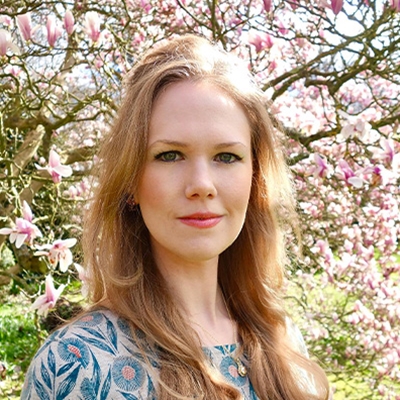
Event 417
Daisy Dunn
The Missing Thread
– Global Stage
Read moreSpanning 3,000 years, from the birth of Minoan Crete to the death of the Julio-Claudian dynasty in Rome, The Missing Thread: A New History of the Ancient World Through the Women Who Shaped It is a new history of the ancient world told, for the very first time, through women. For centuries, men have been writing histories of antiquity filled with warlords, emperors and kings. But when it comes to incorporating women, aside from Cleopatra and Boudica, writers have been more comfortable describing mythical heroines than real ones. While Penelope and Helen of Troy live on in the imagination, their real-life counterparts have been relegated to the margins. In The Missing Thread, Daisy Dunn inverts this tradition and puts the women of history at the centre of the narrative.
Dr Daisy Dunn is an award-winning classicist and author. Her previous book, Not Far From Brideshead: Oxford Between the Wars, was selected for Radio 4’s Open Book and longlisted for the Runciman Award. Her In The Shadow of Vesuvius: A Life of Pliny was an Editor’s Choice in the New York Times and a book of the year in several outlets.
Supported by TikTok
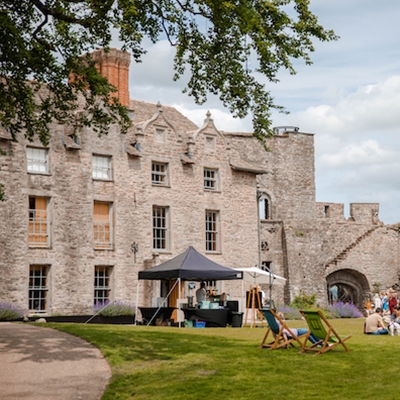
Event HC15
Hay Castle Entry Ticket
– Hay Castle
Read moreA fantastic opportunity to see behind the scenes of this unique and historic building. Visit at a time of your choice during Castle opening hours.
A Hay Castle Trust event

Event HC16
Breakfast Tour with Tom True
– Hay Castle
Read moreHay Castle’s executive director Tom True introduces the key moments and characters from the castle’s past followed by a continental breakfast.
A Hay Castle Trust event

Event 271
Cat Bohannon talks to Adam Rutherford
Eve
– Discovery Stage
Read moreCat Bohannon answers questions scientists should have been addressing for decades. With boundless curiosity, she examines the past 200 million years to explain the specific science behind the development of the female sex. Eve, her first book, is not only a sweeping revision of human history, it’s an urgent and necessary corrective for a world that has focused primarily on the male body for far too long. Bohannon’s findings will completely change what you think you know about evolution and why Homo sapiens have become such a successful and dominant species. She talks to scientist, writer and broadcaster Adam Rutherford.
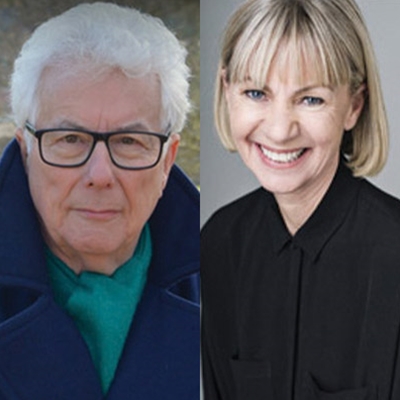
Event 274
Ken Follett and Kate Mosse
Bringing History to Life
– Global Stage
Read moreTwo giants of historical fiction discuss their stories, and how and why they tell them. Follett’s latest novel The Armour of Light is set in his fictional Kingsbridge in 1792, with revolution in the air. As industrial change sweeps the land and a tyrannical government is determined to make England a mighty commercial empire, a small group of spinners and weavers fight for a future free from oppression. Mosse’s The Ghost Ship is an epic story of concealed identity, piracy and revenge, ranging from Paris to Amsterdam and the Canary Islands in the early 1600s. The Ghost Ship hunts pirates to liberate those enslaved during the course of their merciless raids – but now it is under attack.
Sponsored by Tomatitos Tapas Bar
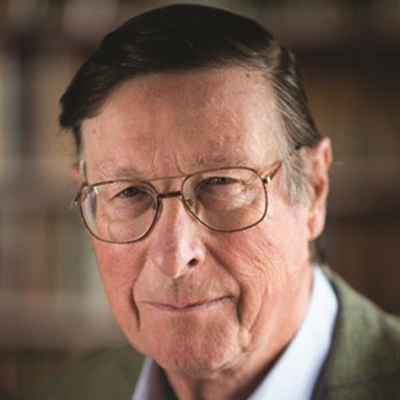
Event 276
Max Hastings
Operation Biting
– Global Stage
Read moreMilitary historian Max Hastings (Operation Pedestal, Abyss) tells an almost-forgotten story with his signature blend of top-down and bottom-up action detail. Operation Biting was a daring assault on the coast of Nazi-occupied Europe to capture key components of a newly-identified radar network. Amid heavy snow 120 men landed, some of whom were mis-dropped almost two miles from their objective. They nonetheless launched the assault, dismantled the German radar, and after three nail-biting hours in France and a fierce battle with Wehrmacht defenders, escaped in the nick of time. Meet the fascinating personalities and hear the wealth of previously unchronicled detail in this almost literally cliffhanging tale.